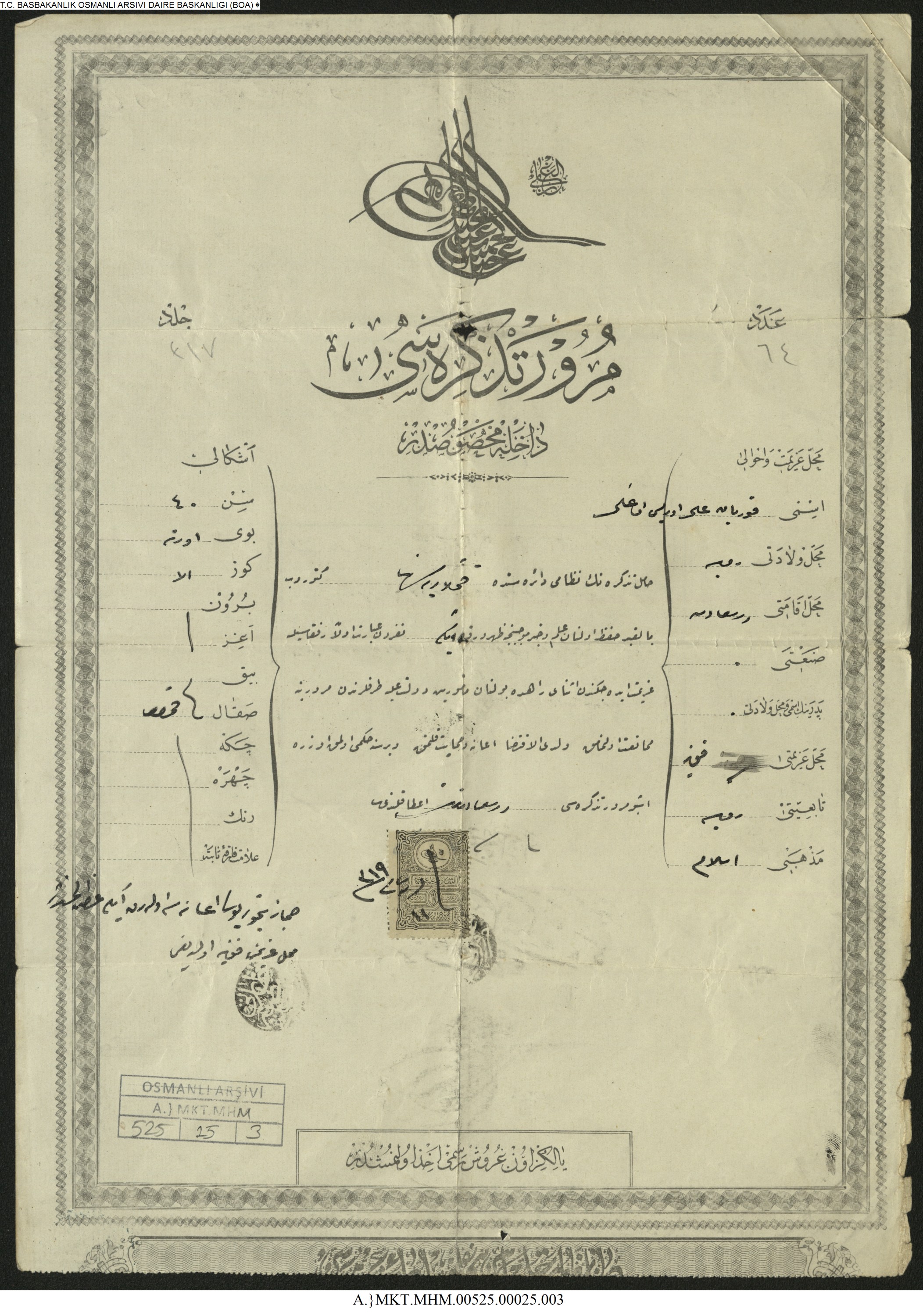This study aims at exploring the relation between the Ottoman government’s threat perceptions, security policies and control over geographical mobility by analyzing the passport regulations with using archival materials. The study tries to explain the disciplinary modern power mechanisms developed by the Ottoman political elite through the analysis of the administrative practices and regulations on geographical mobilization in everyday life as surveillance techniques.
In the Hamidian Era (1876-1908), the geographical mobility is one of the burning issues of the Ottoman political elite as part of the security policies. The new threat perceptions of the political elites, mainly based on political problems, directed their attention to the Armenians, Bulgarians, seasonal workers, foreign workers and members of secret societies. Besides this, the new legislative and administrative security reforms were also influenced by the anarchist fear in Europe and the anti-anarchist regulations against “propaganda by deed”. The threat perceptions thus shaped the security discourse of the political center.


